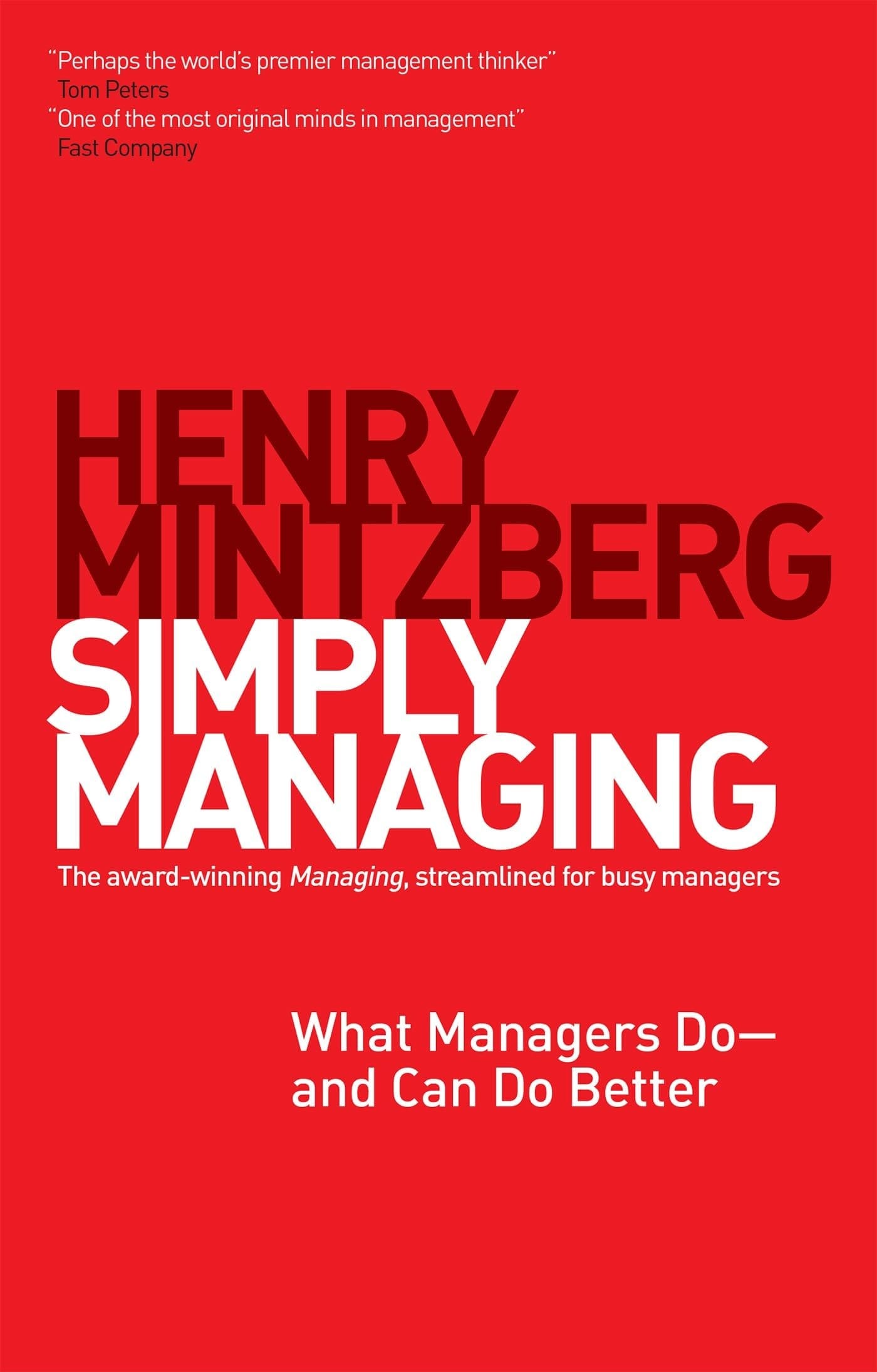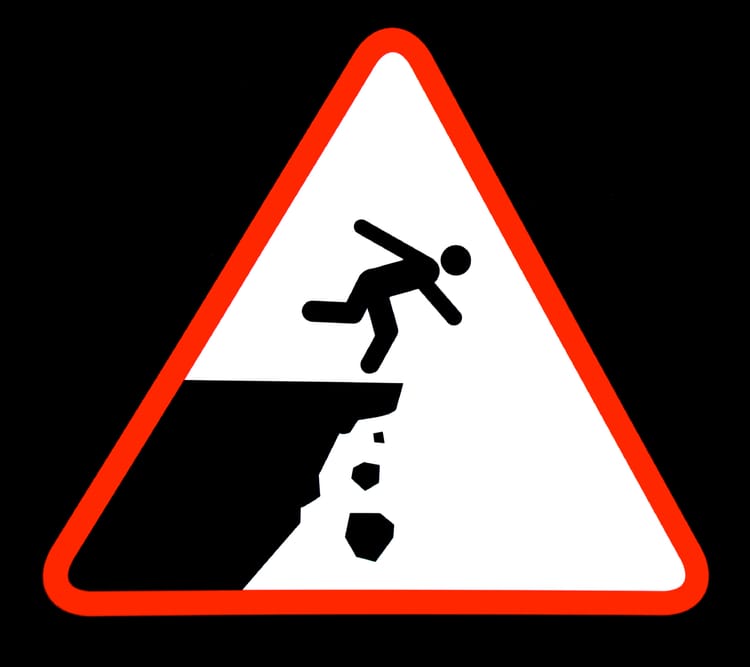The 15 reflection questions Henry Mintzberg wants managers to ask themselves

On my summer break, over the last two weeks of August, I read a book titled ‘Simply Managing’ by a renowned management professor named Henry Mintzberg, who teaches teach at McGill University’s school of business.
The book was based on a monumental research study Mintzberg conducted in which he followed each of 29 different managers around for a day. The managers ranged in seniority from CEOs, to senior executives, to middle managers, all the way down to frontline managers. He also took care to observe managers from a wide array of sectors, including private, public, health care, and nonprofit. What I also found interesting about this project (perhaps because I’ve spent most of my professional life working with corporate clients) is that he shadowed several managers from outside of corporate settings, like the commissioner of the Royal Canadian Mounted Police, the executive director of Greenpeace International, the conductor of the Winnipeg symphony orchestra, and the manager of a refugee camp in Tanzania.
The book contains many useful insights on management, which he distilled from his investigation, sometimes presented in short, declarative, punchy, aphoristic, and entertaining statements.

Beyond the fun of reading his distinct writing style, one of the most useful tools I uncovered in the book was a simple list of reflection questions Mintzberg proposes managers consider. These questions encompass several models, principles, and takeaways emerging from the book, and probably also his broader philosophy about what issues managers most need to pay attention to.
The list represents a useful set of self-study questions managers can think through, journal about, or discuss with a trusted colleague, mentor, or advisor. Or they could use these questions in a group discussion with other managers (sometimes called ‘Leadership Circles’), pre-selecting a few to discuss, and then sharing perspectives on each.
You’ll find these questions relate to balancing different tension points (e.g., superficiality vs depth, reflecting vs acting, doing vs delegating, managing external vs internal relations) which can never be fully resolved. They are features, not bugs of management jobs - built-in problems, or conundrums that will never be settled, or made to rest in perfect equilibrium. In my next article, I’ll elaborate on these conundrums, since for me they were the most compelling section of the book.
For now, if you’re looking for a self-guided development challenge, try spending 20 minutes reflecting on and writing responses to the following questions:
- Where do I get my information, and how? How can I make greater use of my contacts? How can I get others to provide me with the information I need? Do I have sufficiently powerful mental models of those things I must understand?
- What information do I disseminate? How can I get more information to others so they can make better decisions?
- Do I tend to act before enough information is in? Or do I wait so long for all the information that opportunities pass me by?
- What pace of change am I asking my unit to tolerate? Is this balanced with the needed stability?
- Am I sufficiently well informed to pass judgment on the proposals submitted to me? Can I leave final authorization of more of these proposals to others?
- What are my intentions for my unit? Should I make them more explicit to guide better the decisions of others? Or do I need flexibility to change them at will?

The previous question reminds me of the concept of signaling, which I wrote about here, though more in the context of challenging for high performance.
- Am I sufficiently sensitive to the influence of my actions, and my managerial style in general? Do I find an appropriate balance between encouragement and pressure? Do I stifle initiative?
- Do I spend too much time, or too little, managing my external relationships? Are there certain people whom I should get to know better?
- In scheduling, am I just reactive to the pressures of the moment? Do I find the appropriate mix of activities, or do I overconcentrate on what I find interesting? Am I more efficient with particular kinds of work at special times of the day or week?
- Do I overwork? What effect does my workload have on my efficiency and my family? Should I force myself to take breaks or reduce the pace of my activity?
- Am I too superficial in what I do? Can I really shift moods as quickly and frequently as my schedule requires? Should I decrease the amount of fragmentation and interruption?
- Am I a slave to the action and excitement of my job, so that I am no longer able to concentrate on issues? Should I spend more time reading and probing deeply into certain issues?
- Do I use different media appropriately? Do I know how to make the most of written communication and email? Am I a prisoner to the pace of email?
- Do I rely excessively on face-to-face communication, thereby putting all but a few of my reports at an informational disadvantage? Do I spend enough time observing activities firsthand?
- Do my obligations consume all my time? How can I free myself from them to ensure I’m taking the unit where I want it to go? How can I turn my obligations to my advantage?
I found it interesting that in his book Mintzberg mentions he originally developed these questions in 1973 (!), in one of his early books titled ‘The Nature of Managing.’ He then (I assume) adapted them for this current book, based in part on his study results.
What this tells me – and a position I think Mintzberg would support – is that while the world of work has changed considerably in the last 50+ years, technologically and culturally, the fundamental challenges and practices of management remain stubbornly constant. It will always be an incredibly hard job, that encourages divided attention, and that’s onerous to learn about except through firsthand experience and perhaps many rounds of failure. Since one key pathway for learning about management seems to be through mining one’s own personal experience to uncover lessons, this set of reflection questions seems like a good place to start.
Music
My daughter loves to sing along to the chorus of this song, which brings me a lot of joy 😄
Tim Jackson, Ph.D. provides advisory and deep expertise on executive leadership development, to dynamic and high-performance organizations.
Tim's services include in-depth executive assessment for development; one-on-one executive advisory rooted in his deep expertise of the drivers of leadership effectiveness; workshops on a variety of leadership topics built with evidence-based data; and facilitated sessions that create dialogue among senior leaders on important leadership themes, in an environment that promotes shared learning.
Throughout his 18-year career, Tim has worked with a wide variety of clients, including CEOs, executives, managers, and individual contributors; leaders located in Canada, the US, Europe, and China; individuals spanning 11 different industry sectors and every key functional area; and those driving major change inside private-equity owned businesses.
The following are examples of how Tim has delivered value to his clients: he assessed and coached 28 leaders in a large Canadian CPG company over a 5 year period, including preparing high potentials for promotion and helping derailing leaders course correct; he coached senior leadership team members and middle managers in a global chemical company to navigate dynamic change resulting from the largest acquisition in their history; and he provided assessment, coaching and advisory support to the CEO of a Canadian ‘supercluster,’ a federally-funded accelerator of strategic economic activity (this cluster received renewed funding in early 2023).
Tim has published his ideas about leadership in various outlets, including The Globe and Mail, Forbes.com, several HR trade magazines, and peer-reviewed journals. He also writes original articles about leadership topics in his newsletter at www.timjacksonphd.com. He has also shared details about his practice at leading conferences like the Society for Industrial and Organizational Psychology.
Tim has a Ph.D. in Industrial/Organizational Psychology from Western University, where he explored the drivers of leadership effectiveness in both his Master’s and Dissertation-level research. He and his family are based in Toronto, ON.
Please feel free to contact Tim with your feedback about this site, questions about his services, or to share your own ideas about leadership in organizations.
Email: tjackson@jacksonleadership.com
Phone: 647-969-8907
Website: www.jacksonleadership.com
Newsletter: www.timjacksonphd.com







Member discussion